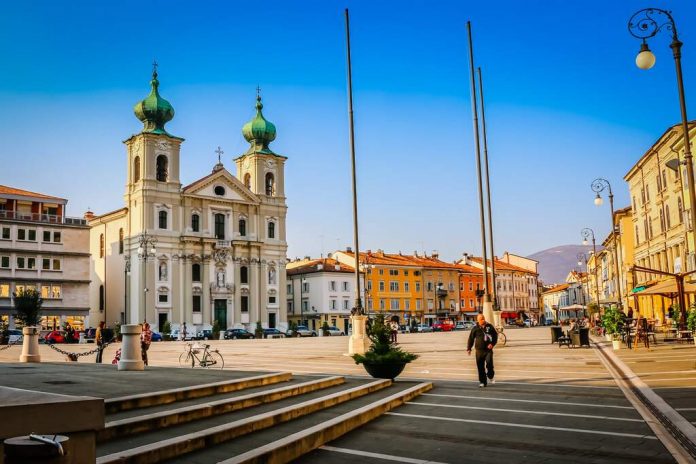by InTrieste
In a bold move aimed at positioning Gorizia Airport “Duca D’Aosta” as a top-tier event destination, regional authorities have earmarked a substantial €2.5 million investment. The initiative, unveiled through a Regional Government amendment to the Omnibus bill, seeks to revamp the airport grounds to accommodate large-scale events, capable of hosting up to 100,000 attendees. This strategic overhaul comes in anticipation of Gorizia’s bid for the esteemed title of European Capital of Culture in 2025.
Under the proposed amendment, a comprehensive program agreement is on the horizon, set to unite regional stakeholders including the Region, the Municipality of Gorizia, and airport authorities. This collaboration aims to catalyze infrastructure enhancements ranging from modernizing the airport’s perimeter fencing to addressing historical wartime remnants within the vicinity. Additionally, provisions will be made for robust utility connections including electricity and wastewater networks to ensure seamless event operations.
The significance of Gorizia Airport as a potential event hub was emphasized by regional officials, noting its unique capacity to accommodate massive gatherings, a rarity in the region. Beyond the immediate benefits tied to Go!2025, the initiative is poised to yield long-term economic dividends, positioning Friuli Venezia Giulia as a formidable tourist destination.
In a parallel development, regional legislators are contemplating an extension of financial incentives, notably a maximum €20,000 grant, to owners of tourist accommodations within municipalities earmarked for Go!2025 activities. This move underscores the commitment to bolstering local tourism infrastructure, fostering sustainable growth in the hospitality sector.
Furthermore, regulatory reforms are underway to empower mountainous communities with enhanced incentives for economic development. Through collaborative efforts between municipalities and local economic consortia, these reforms aim to harness the untapped potential of mountainous regions, aligning with the broader vision of regional prosperity.
Acknowledging feedback from industry associations, authorities are also poised to relax constraints on dispersed hotel operations. This flexibility allows these establishments to adapt to changing market dynamics without compromising their viability, ensuring continued contributions to the region’s tourism ecosystem.
In addition to these substantive policy changes, procedural enhancements are in the pipeline to streamline the recognition of historical activities and facilitate seamless access to maintenance funds for vital infrastructure such as refuges.
As the region embraces these progressive reforms, all eyes are on Gorizia Airport’s transformation into a dynamic event epicenter, poised to leave an indelible mark on Friuli Venezia Giulia’s cultural and economic landscape.





























